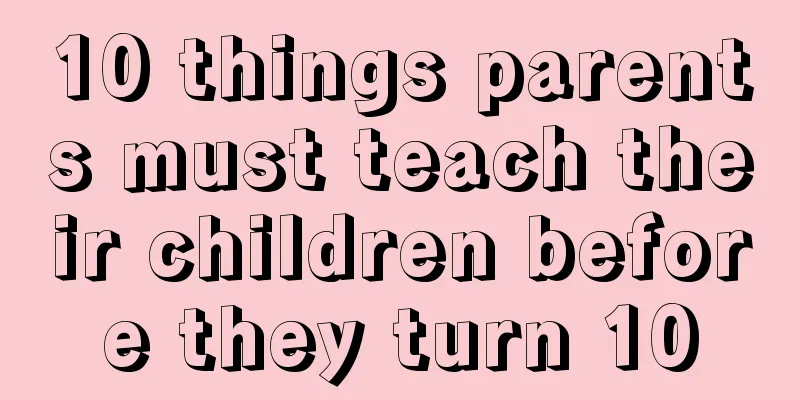0-1 year old baby's visual development process

|
There is a saying that newborns have no vision. Is it true? Actually, it is not. Newborns just cannot distinguish because the signals are too strong when they are born. So many lights from far and near suddenly rush into their eyes, and they cannot figure out what they are. So what is the process of vision development for babies aged 0-1 years old? The editor below will help you uncover this mystery. 1. Fetal period: Studies on fetuses have found that at 6 weeks, the optic nerve begins to pave the way, connecting the retina to the "primary" brain. Then, the lens and cornea of the eye form, and the eyelids cover the eyes. At around 6 months, the fetus is already very sensitive to light. He could feel the intensity of the light because it could pass through the tissue and muscles of the mother's abdomen and into the womb. As birth approached, Liangliang practiced opening his eyes more and more often, preparing to enter a bright world. 2. Newborn: The signal is too strong to be distinguished, so the debugging work begins! Although the visual apparatus of a newborn is in place, it is still very immature and cannot function effectively right away. So many lights from far and near suddenly poured into his eyes. It was too bright and he couldn't make out what they were. Within a few hours, a newborn's eyes begin to work. If his visual system is regarded as a machine, then this machine not only needs lubrication, but also needs debugging! Now, he can only see the general outline of things within 18 to 38 centimeters in front of his eyes, because his ciliary muscles lack strength and are not yet able to adjust. However, this regulatory capacity is constantly improving. He also needed to solve another problem: the photoreceptors (light receptors) in the retina at the back of the eye had not yet grown fully, and there were not enough of them. Therefore, his field of vision is only about 45 degrees. Photoreceptor cells will develop gradually, and eventually, about 6 million cones responsible for distinguishing details and identifying colors will be concentrated in the middle of the retina, while hundreds of millions of rods responsible for receiving light will be distributed around the retina, giving him a wider field of vision to see the three-dimensional world he lives in. This is the visual development process of babies aged 0-1. It is in the changes and accumulation of these little abilities that babies begin to see the world, become curious about the world, and want to understand the world. This information is integrated in the baby's brain, which is the most important foundation for helping babies develop their own clear "vision" and slowly develop their own little world! |
<<: How to treat cerebral palsy in children?
>>: Breakfast recipes for eight-month-old babies
Recommend
What are the measures to relieve baby’s constipation and smelly farts?
The baby's digestive function is very weak. I...
Why does eczema appear on the wrists?
There are many patients with eczema in our lives....
What to do with careless children?
It is very common for children to be careless. Te...
Symptoms of intestinal spasms, do these mothers know?
Intestinal spasms are more likely to occur in chi...
Treatment of infant cough with phlegm and runny nose
The phenomenon of babies coughing, having phlegm ...
What to do if your baby has white bubbles in his throat
Many adults are very concerned about the physical...
What are the symptoms of purpura in children
Purpura is a very scary skin disease, which is ma...
When does a baby grow double eyelids?
The growth factors of double eyelids and single e...
How much milk is appropriate for a baby to eat in half a month?
Without realizing it, the baby grows very fast. W...
What causes numbness in children's legs?
Children usually run and jump around and are full...
How to improve children's immunity
Many children are always sick, which makes their ...
Male baby's genital head is red and swollen
The main difference between boys and girls is the...
Can children eat Cordyceps sinensis?
Cordyceps sinensis is a medicine that many people...
What to do with phimosis in children and how to treat it
The most common method for treating phimosis in c...
What is sleepiness in newborns?
In our lives, many babies are particularly sleepy...









